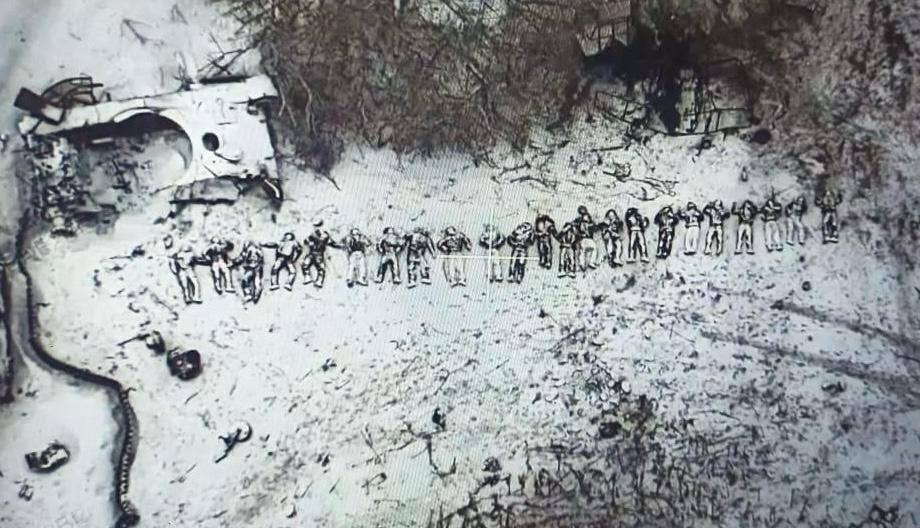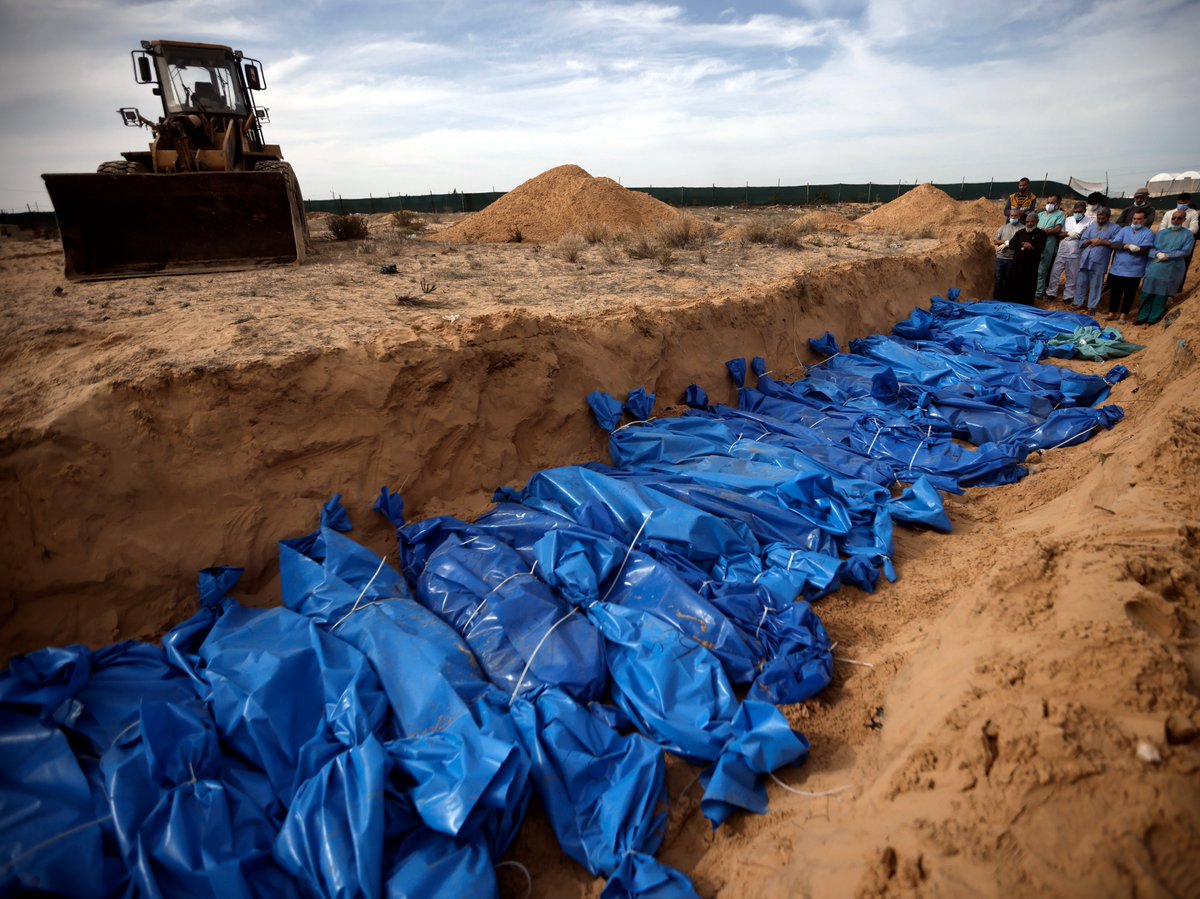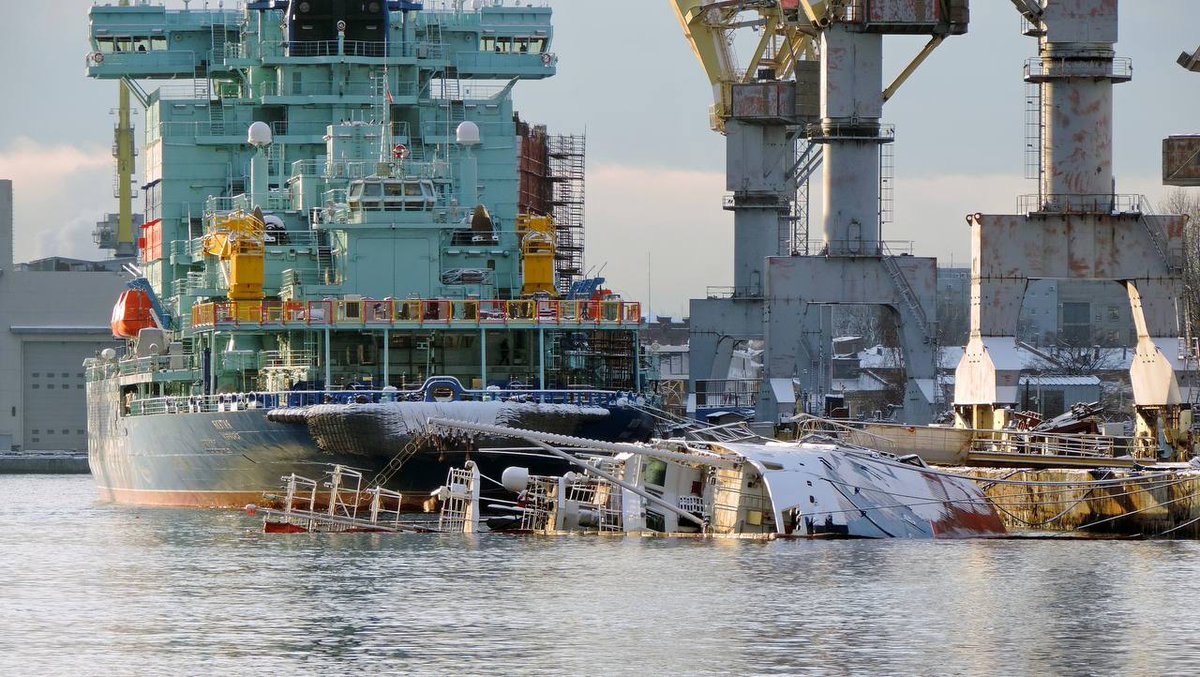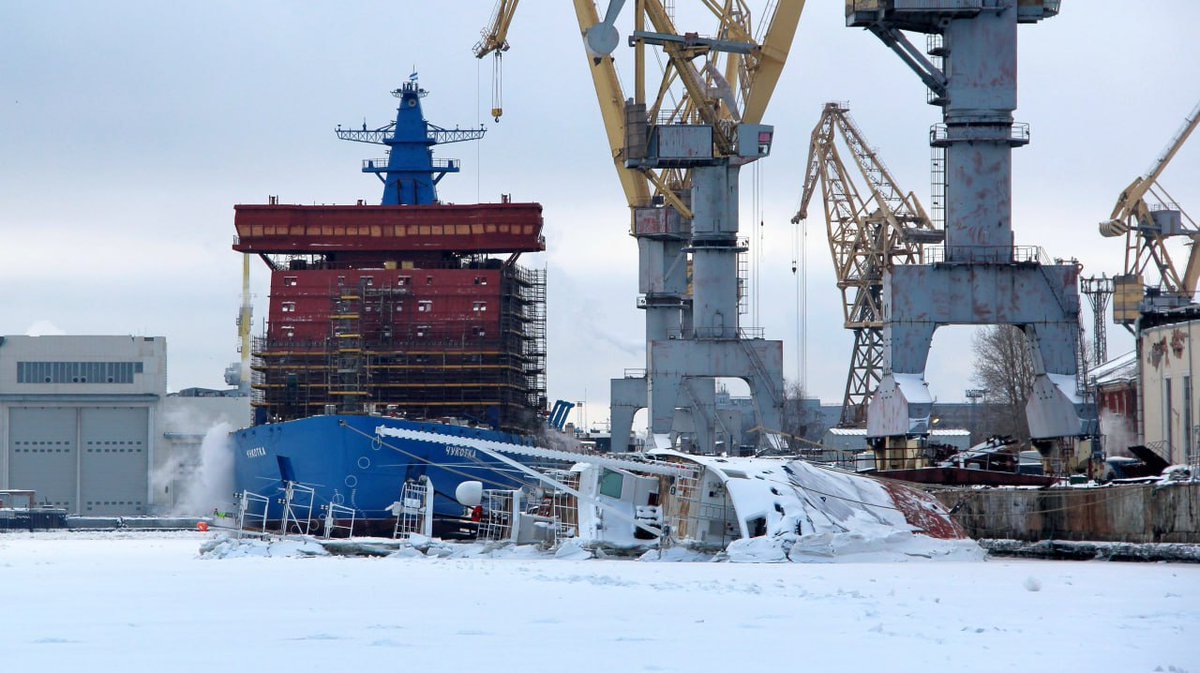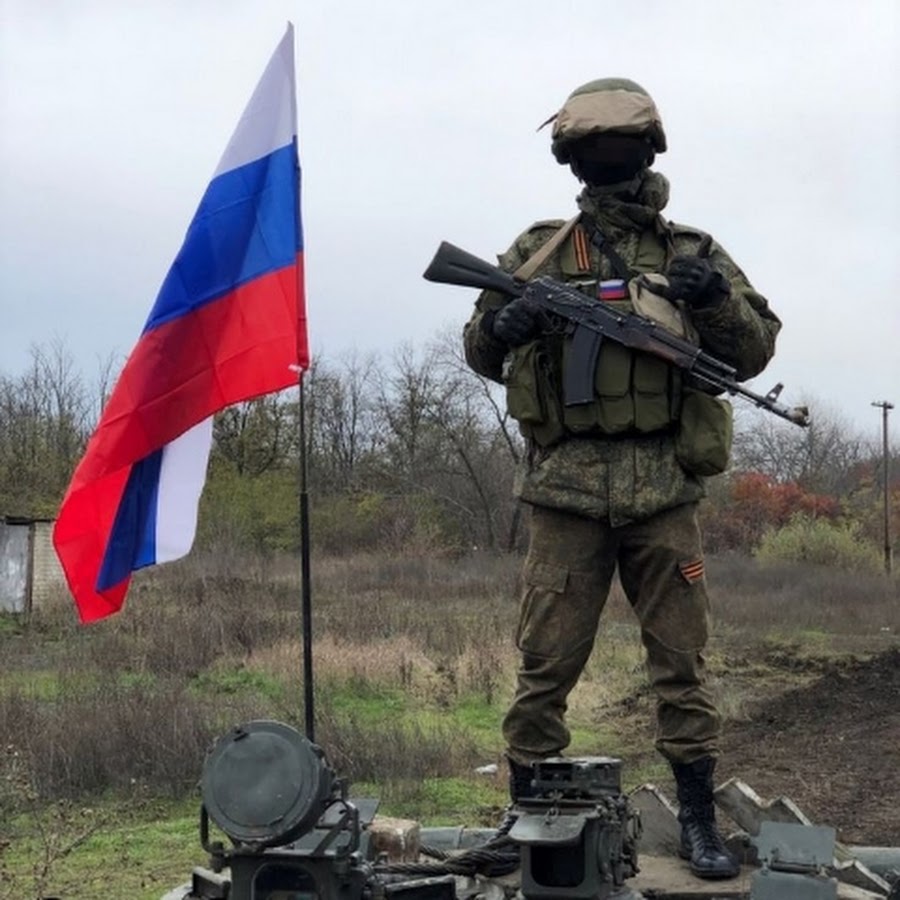1/ A detailed inside account of the sinking of the Russian missile cruiser Moskva has been published. It describes how the ship was overwhelmed with fire and smoke, safety systems failed, interior structures collapsed and crewmen jumped out through portholes to save themselves.⬇️ 

2/ On the afternoon of 13 April 2022, Moskva was struck and set on fire by two Ukrainian Neptune missiles. A day later, the ship sank. Russian authorities said that 396 crew members had been evacuated, with one sailor killed and 27 missing. 

3/ Dmitry Shkrebets, the father of one of the missing sailors, has compiled an extremely detailed dossier of the events that led up to the sinking and how the sinking itself took place. It includes survivors' first-hand accounts. The ship was in a very poor condition at the time.
4/ As previously reported, a February 2022 report by its captain found numerous technical deficiencies in many of the ship's systems due to an apparent lack of maintenance. These were compounded by crewing issues on the ship.
https://x.com/ChrisO_wiki/status/1914601167591481804
5/ Shkrebets' dossier reports that about 100 experienced contract sailors were removed from the cruiser Moskva just before the war and transferred to other duty stations. Their places were taken by 83 conscripts, like Shkrebets' son Yegor, who were formally regarded as trainees. 

6/ As well as being inexperienced and new to the ship, the conscripts were not supposed to be sent to a war zone. Despite this, Moskva repeatedly spent extended periods in Ukraine's territorial waters, most famously during the capture of Snake Island on the invasion's first day. 

7/ The ship's logbook records numerous combat alerts caused by the detection of Ukrainian aircraft and incoming rocket artillery. Black Sea Fleet ships were ordered not to come within 30 km of the coast, but the threat of cruise missile attacks seems to have been ignored.
8/ At the time, as the captain's technical report recorded, the ship's radar and anti-missile systems had malfunctions which reduced effectiveness. On 7 March 2022, an Osa-MA2 air defence missile system on the starboard side had detected a probable UAV when it was only 7 km away. 

9/ Moskva left Sevastopol for her last mission on 10 April 2022. On 12 April, the ship was ordered to "guard and defend" the Odessa gas field, 140 km from Odessa city and about 93 km from the nearest coastline in the Odessa region. This was well within Ukrainian missile range. 

10/ By midnight on the same day, Moskva had reached a point within 5 km of the gas field. Despite the missile threat, it was not accompanied by any other ships, but the rescue vessel Epron was nearby. During the morning of 13 April the crew undertook exercises on board. 

11/ According to Shkrebets, at 14:20 on 13 April, the ship detected incoming missiles only 4 km away. This was too close for the crew to react in time, and the missiles struck Moskva at a height of 3.5 m to 4 m above the waterline a few seconds later, just below the upper deck.
12/ Shkrebets provides a diagram of where the missiles hit. He writes that the first missile had the most destructive effect, hitting "the central part of the cruiser (compartment 8), with the galley and crew mess rooms at the epicenter of the explosion." 

13/ The entire ship's crew had been scheduled to assemble in the mess room at 14:00 to be told about the outcome of the exercises, but this was delayed due to the mess crew not having washed the dishes and cleaned up in time. If they had, most of the crew would likely have died.
14/ The first missile strike also badly affected the engine room and the ship's damage control post, which controlled the ship's power systems and emergency response. It exploded a short distance below and behind a Vulkan P-1000 anti-ship missile system on the upper deck. 

15/ The second missile hit the stern at the junction of compartments 12 and 13, below an AK-630 anti-aircraft gun, next to a torpedo tube and very close to the launcher for an S-300F Fort anti-aircraft missile system.
16/ As a result of the missile strikes, Shkrebets writes, "there was destruction, blocking and deformation of bulkheads, hatches and doors. Formation of cracks in the ship's hull structures and decks, collapse of ladders and platforms."
17/ "For example: in the officers' corridor they couldn't seal the door because it was simply torn off its hinges.
Which critically complicated orientation (due to the lack of electric lighting), visibility and the ability to breathe fully."
Which critically complicated orientation (due to the lack of electric lighting), visibility and the ability to breathe fully."
18/ The ship's main corridor was blocked by debris, preventing anyone from using it to exit the galley or mess, and "the ladders in the engine room were torn off (all the way to the starboard side)."
19/ The explosions rocked the ship, but the men on the upper deck and superstructure only perceived "two strong and dull bangs, indicating the detonation of missiles deep inside the ship's hull."
20/ Those near the impact points experienced a fiery blast. One man who was in the galley and mess hall at the time of the impact described it as "a barrage of fire rushing in, I didn't even hear the explosion."
21/ Very fortunately for the crew, none of the ammunition in the weapons systems near the impact points detonated at that time. If it had, the ship would undoubtedly have sunk very quickly and taken most of the crew with it.
22/ Although the initial fire in the stern caused by the second missile was soon extinguished, the fire in the mess hall burned through most of the ship, up to compartment 3 in the bow, and most of the way to the stern (as far as compartment 14).
23/ Shkrebets writes: "Due to the large-scale destruction, collapses and deformation of the ship's structures, thick and dense smoke penetrated almost everywhere without hindrance." The decks were "riddled with through cracks and fractures" which let the smoke spread.
24/ Project 1164 Atlant-class ships like Moskva have continous corridors along the entire lengths of their upper and lower (residential) decks. This contributed to the rapid spread of the fire and smoke. The bulkheads could not be sealed due to buckling caused by the explosions.
25/ Even on the upper deck, "the smoke itself was very thick and heavy (relative to the air), looked black, with large 'flakes' of soot, so there was essentially no air 'cushion' below (for breathing)." It was so thick that the men could not even see the life rafts on the deck.
26/ A number of men near the site of the explosions died immediately. Others perished "while trying to climb to the upper deck, through collapses and a wall of toxic smoke, in conditions of almost zero visibility." Some fell into the sea and died of hypothermia or drowing.
27/ TO BE CONTINUED: how Moskva's surviving crew fought to save the ship.
Part 2 is here:
https://x.com/ChrisO_wiki/status/1918371539558515002
@ShipWrektPod As for the rear FRPP team being more effective, I think this could be accounted for by less severe damage and smoke at the aft. Shkrebets describes immediate severe fire and smoke forward and centre. The radio call I posted in part 2 likely came from the rear command post.
@ShipWrektPod I think what happened was that the rear command post was able to organise more quickly due to being less disrupted than the bridge, and was able to extinguish the second fire quickly because there was less local damage and fire. It also had the ship's only accessible fire suits.
• • •
Missing some Tweet in this thread? You can try to
force a refresh


